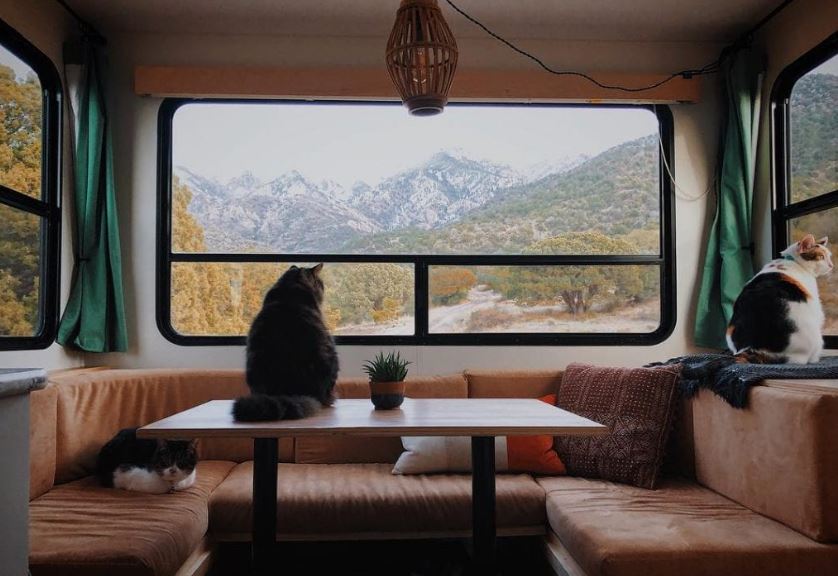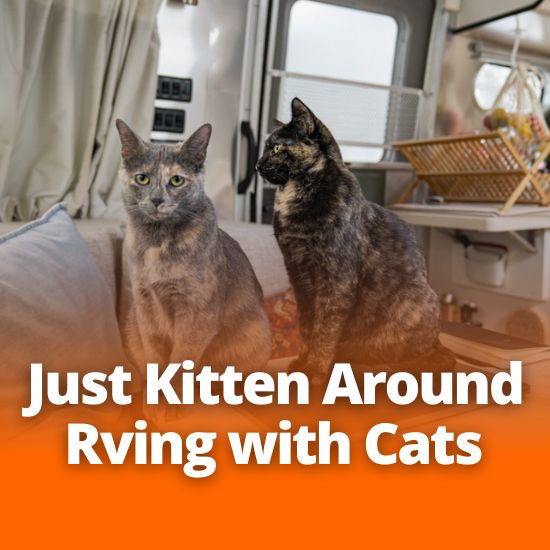
Just Kitten Around - RVing with Cats
Look, not everyone is a dog person, okay? Some people are more Garfield than Odie and that’s totally fine! Dogs drool, can be pretty loud, and require a lot of physical stimulation for the most part. Cats are great companions but every cat owner knows the feeling of coming home and having their cat stare at them like they’re offended you’ve entered their domain. So, for many of us they’re the perfect family member!
Cats have one of the most unique relationships to humans of all the domesticated species, in fact many scientists argue that cats actually domesticated themselves rather than the other way around. Sneaking their way into human lives as natural pest deterrents and exterminators and in Ancient Egypt taking positions of worship. Despite this, cats weren’t even indoor pets until the turn of the 20th century with the invention of things like kitty litter!
So here are our tips for RVing with Felix or Salem (and we promise, there won’t be as many puns this time as our [INSERT RVing WITH DOGS link] post)
Wait, That’s Possible?
Darn tootin’ it is! While dogs account for over 90% of pets taken camping, cats are family too (even if some pretend they aren’t) however, you will want to account for your personal Sylvester’s personality – some may not enjoy leaving their personal sanctuary or don’t enjoy the travel. The nice thing about these little eldritch beings in adorable furry packages is that they require less space than a dog and can adapt well to a smaller setting. However, if your kitty is less of a Simba and more a Duchess and isn’t used to louder surroundings, you might want to get them acclimated to some of the louder campground noises before you head out (louder music from noisy neighbors, generators, etc).

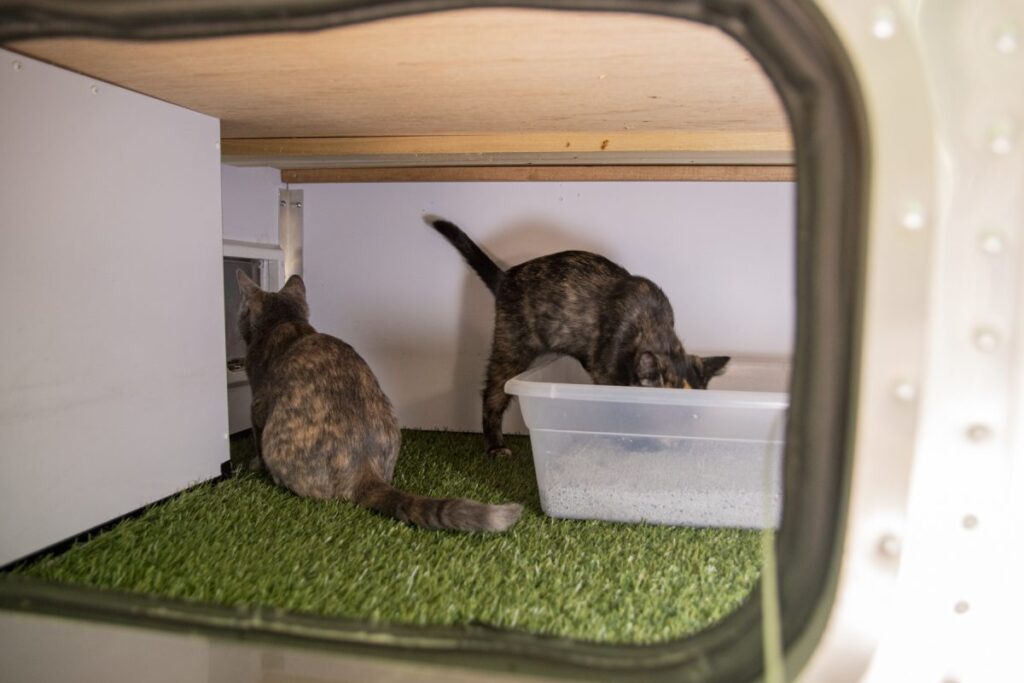
Litter Box
The major difference you’ll have between cats and dogs, as far as maintenance, will be the litter box – one of the biggest hesitations for campers contemplating bringing their cat along. One of the best ways to hide a litter box in your camper will involve a little elbow grease, but converting a large, floor level cabinet for your cat to slip in and out of will conserve space as well as contain smell (as much as possible).
A less manual option is placing the litter box on the floor of your shower, which is great if your cat gets a little litter messy when they go.
Cat Food on the Road
While common food brands will be easy to find at most commercial grocery stores, and even some gas stations depending on the brand, you may find it easiest to stock up before you head out – particularly if your cat has any dietary restrictions or you purchase any specialty food.
That advice goes double for any medication they may need! Just like with dogs (and children of the two-legged kind), keep a copy of your cat’s medical info on hand and be well prepared with any medications they require.

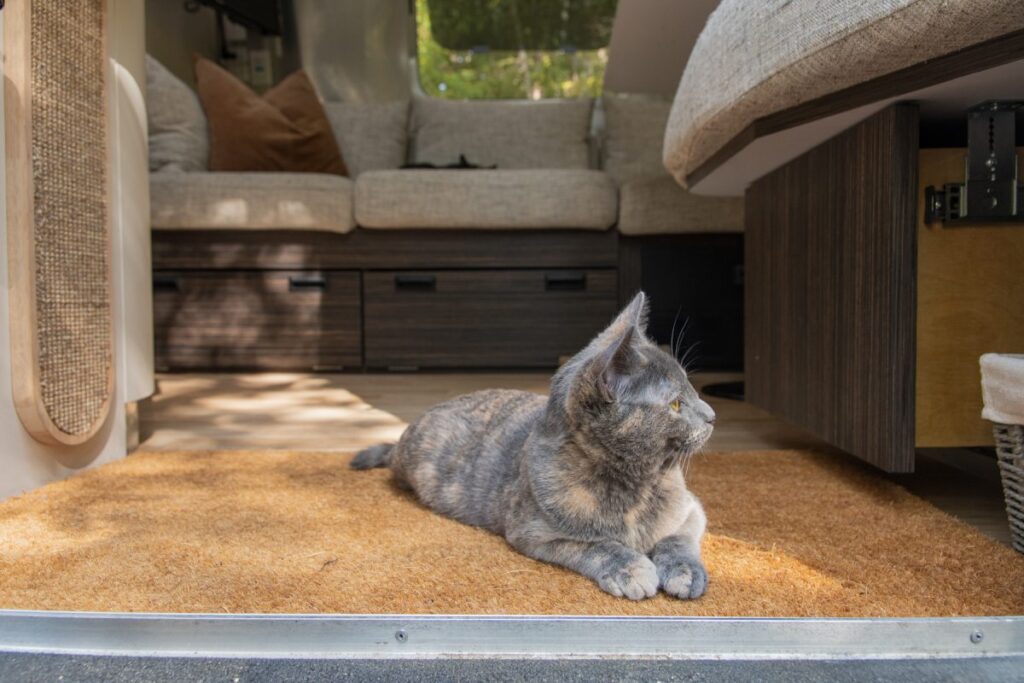
Preparing Your Cat for RV Life
Helping your kitty acclimate to your rig before you head out will save you mountains of stress. Let them spend a few hours at a time exploring your RV or trailer while it’s parked and stationary. If you’re in a motorized unit and you plan on keeping them in a carrier during travel, do a few dry runs so they get used to the new space.
Doing this can not only help your cat get used to the space and familiarize themselves with where their food and litter are, but can also help you with any last-minute cat-proofing.
Travel Days
Lots of cats don’t enjoy car rides, and in the case of RVs it can be dangerous to have them roaming a moving vehicle so it may be best to have them in a carrier while you drive. This can keep them safe and allow you to focus on the road and not worrying about if they’re getting into something they shouldn’t.
In the case of your more anxious felines, you can try things like compression vests that are made to help calm anxious animals, or talk to your vet about a mild sedative that you can give them for long trips.
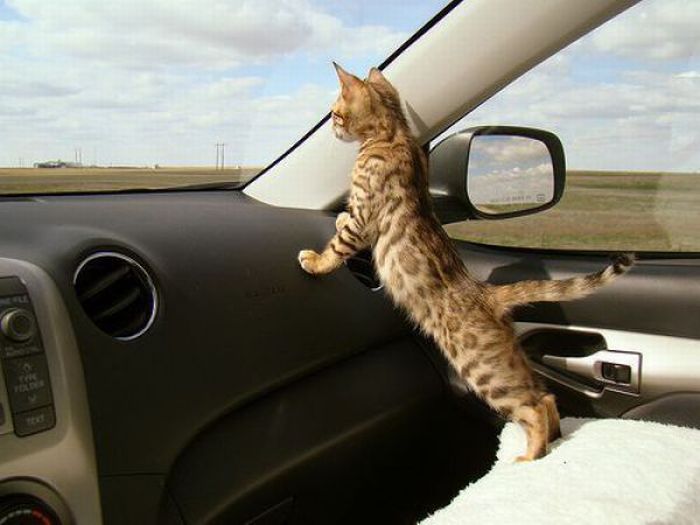
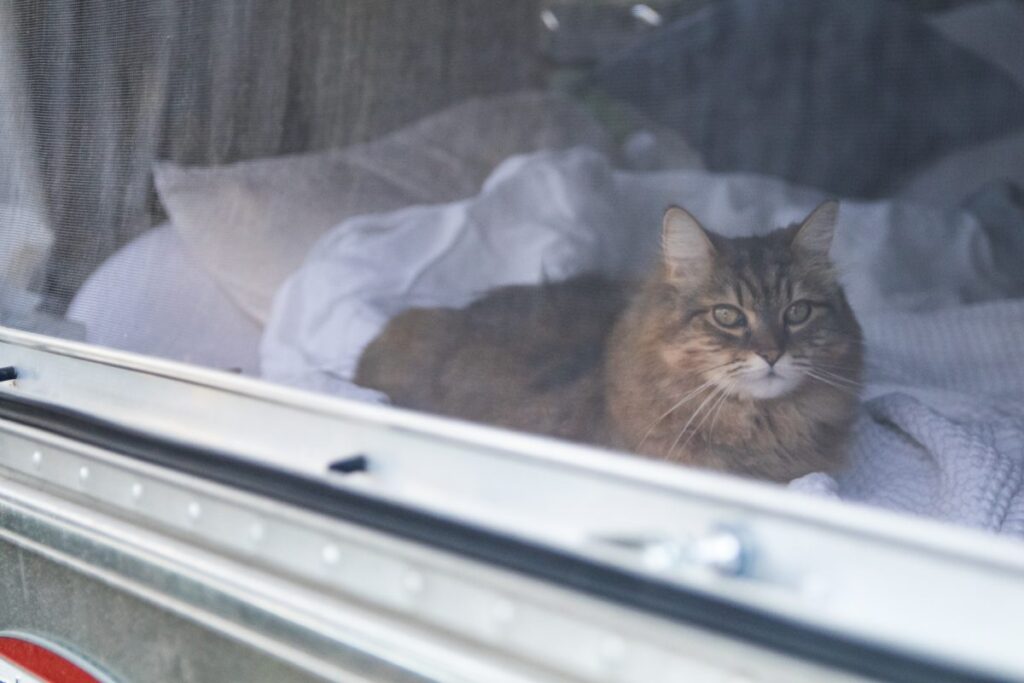
Sleeping and Hiding Spots
Cats are the ultimate creatures of habit and are happiest when they are able to access the spots they deem the most comfortable. Watch your little omen and note where they like to sleep or relax and deem their “safe spaces” and do what you can to make them available. In some cases, your furry friend may enjoy bird watching so you can keep a blind open behind the couch or a chair for them to curl up on, or if they prefer a little privacy, you can leave a cabinet open for them with a few blankets or a bed to make it comfy. Lots of kitties like hiding under beds, unfortunately most RVs and campers don’t have that kind of set up so offer alternatives and see what works best.
Protecting Your Furniture from Cat Claws
Cats will naturally look for surfaces to grate their little murder mittens on. In the case of RV furniture, you’ll want to try and avoid this as much as possible. Unlike a decent table from IKEA, replacing RV or trailer furniture can be way more expensive. Depending on your cat as well as the type of furniture in your unit (as well as its size) your needs will vary as for levels of protection, so look into furniture covers as well as scratching posts that will fit into your unit. There are even options where you can install cat scratch pads on the wall or on corners depending on their habits!
So, if you’ve been dying to hit the road with your wee chaton but weren’t sure where to start, hopefully these tips will help you and your cat enjoy your next trip together!
